"It does not matter how slow you go so long as you do not stop."
It's a cliched quote attributed to Confucius that few take further than a Tumblr reblog or an Instagram repost, but for Jerome Yap, it's pretty much been his motto throughout his life journey thus far.
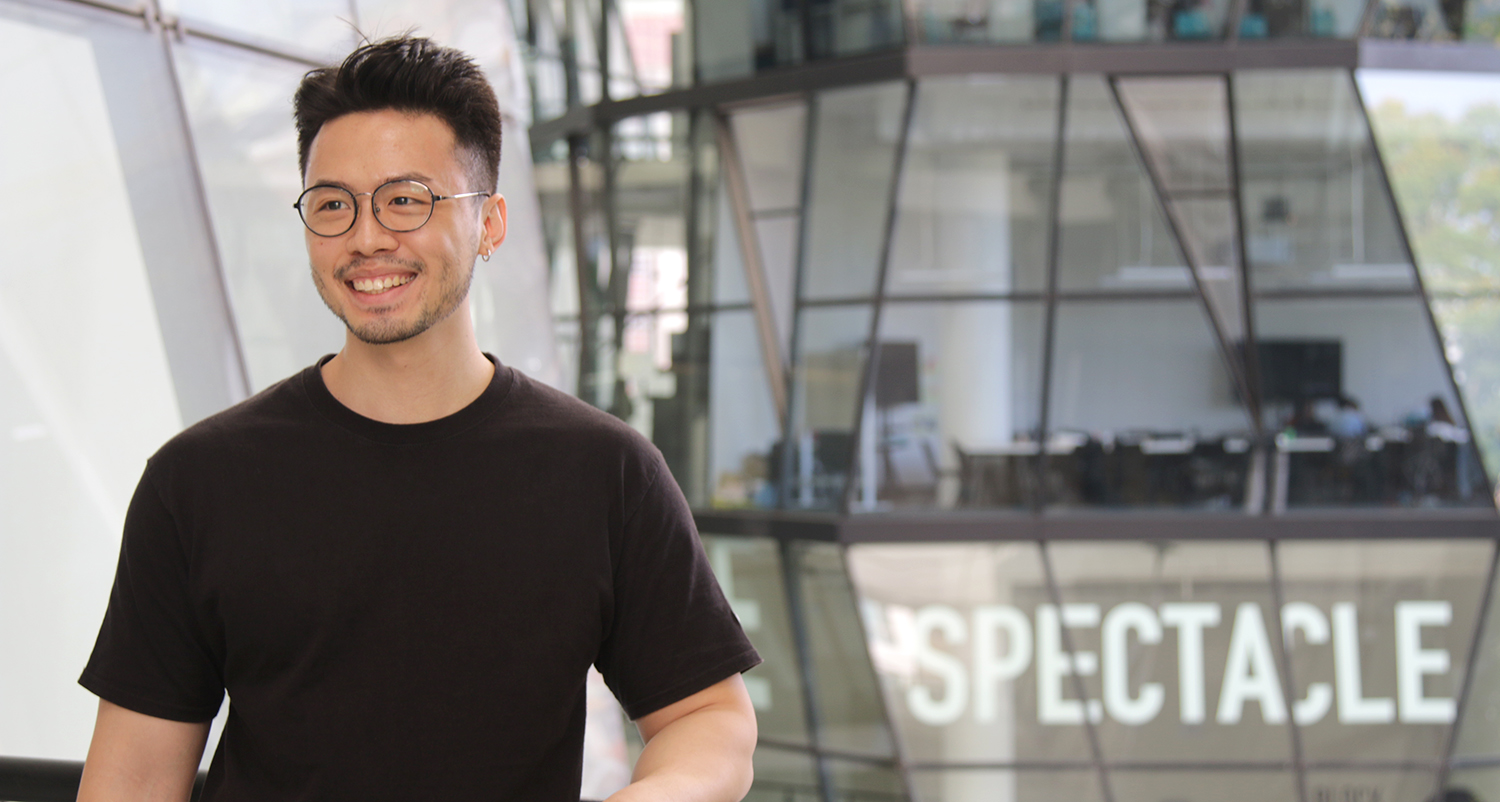 Photo by Ilene Fong
Photo by Ilene Fong
You see, the 28-year-old is in his final year at LASALLE College of the Arts.
His academic journey here has seen ups and downs — from being one of the lowest PSLE scorers in Singapore to becoming first in his poly batch and the first-ever to win the Lee Hsien Loong Interactive Digital Media Smart Nation award.
Here's what his not-so-conventional educational journey looks like:
- Yap started at Greenridge Primary School when he was seven and entered Teck Whye Secondary at the age of 13.
- At 17, he took his NITEC at ITE Balestier and followed that with a Higher NITEC at 19.
- Post-ITE, a 21-year-old Yap enrolled himself into Nanyang Polytechnic. He graduated with his diploma and started his national service when he was 24.
- Yap went on to do a degree course at LASALLE when he was 26, and will be graduating this year at the age of 28.
Always an artist
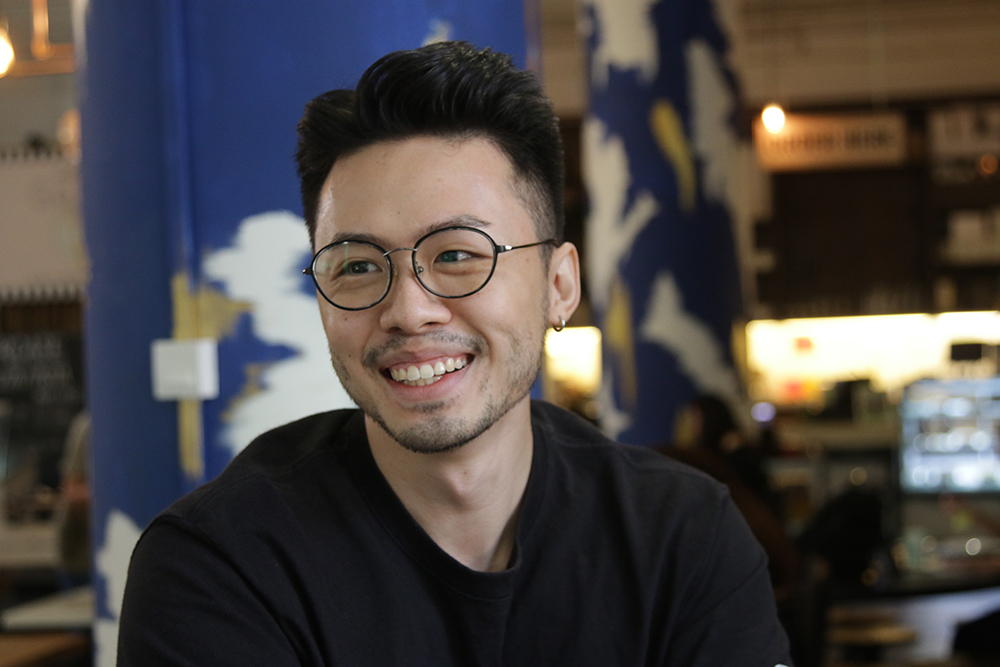 Photo by Ilene Fong
Photo by Ilene Fong
Yap looks every bit the creative. We're sitting in a cafe in LASALLE and he looks perfectly at home in its artsy vibe with his thin, round-framed glasses and a discreet gold hoop in his left earlobe.
And one of the first things he tells us, in no uncertain terms, is that he was always more creatively-inclined.
"I wasn't academically-inclined since young, and I have always known it," he says. "I was just not interested in studying."
It was clear to him, at least, from when he was as young as eight years old, that his strengths lay elsewhere — namely, in drawing and sketching.
Yap shares that his textbooks were filled with doodles of everything from creatures to imaginary monsters — anything that inspired him.
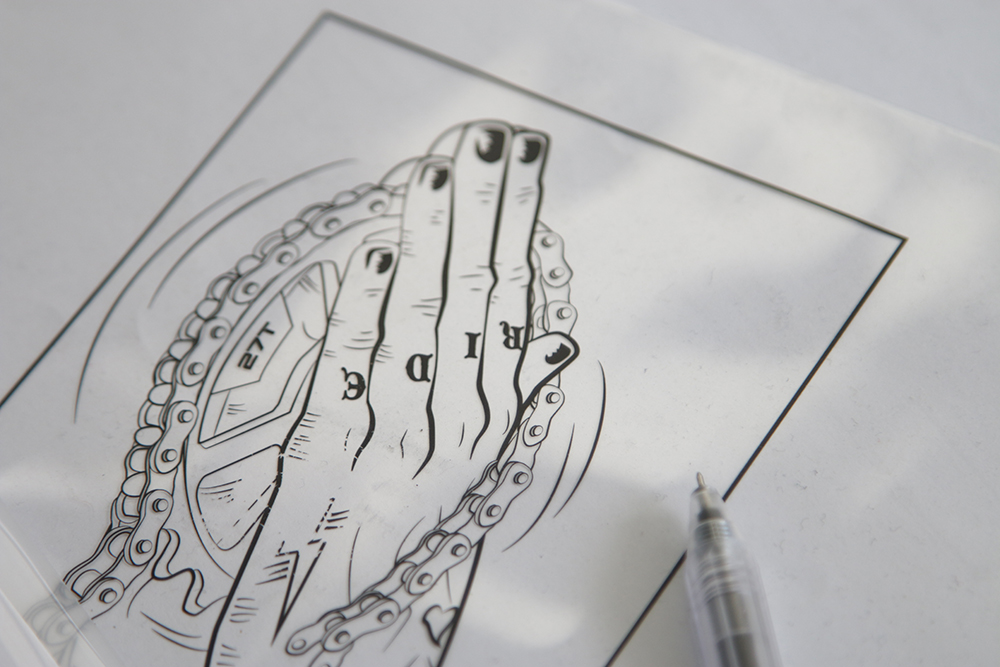 Yap is currently studying Design Communications at LASALLE. Photo by Ilene Fong.
Yap is currently studying Design Communications at LASALLE. Photo by Ilene Fong.
His passion for design was not shared by his parents, though, who wanted him to find a government job or sign on with the army.
His poor academic performance infuriated them, and he often found himself on the receiving end of harsh scolding and caning.
Yap found an unlikely ally (of sorts) in his teachers, however:
"My teachers wrote (in report cards) he is a great artist, he has great talent in design, but my parents just filtered that out... they only saw the parts where my teachers said I'm naughty, playful and not listening in class. They were just being typical parents lah."
Yap's parents eventually gave up on his bochap attitude towards his studies and left him to his own devices after he scored a very abysmal 98 in his Primary School Leaving Examination (PSLE).
"I think that's when they realised this boy is a bit... no point lah," Yap laughs.
Even today, Yap says he finds it difficult to share his passion for art and design with his parents simply because they don't understand it.
Gang fights in secondary school
The only thing Yap remembers from secondary school were gang fights (think broken noses, broken legs — he even mentioned an encounter with a parang) and just passing time in the toilet or sleeping.
"There were times that we didn't want to study so we hid in the toilets and played with our mobile phones. Even when we were in class, we just slept. That was during my time. Perhaps it's different now."
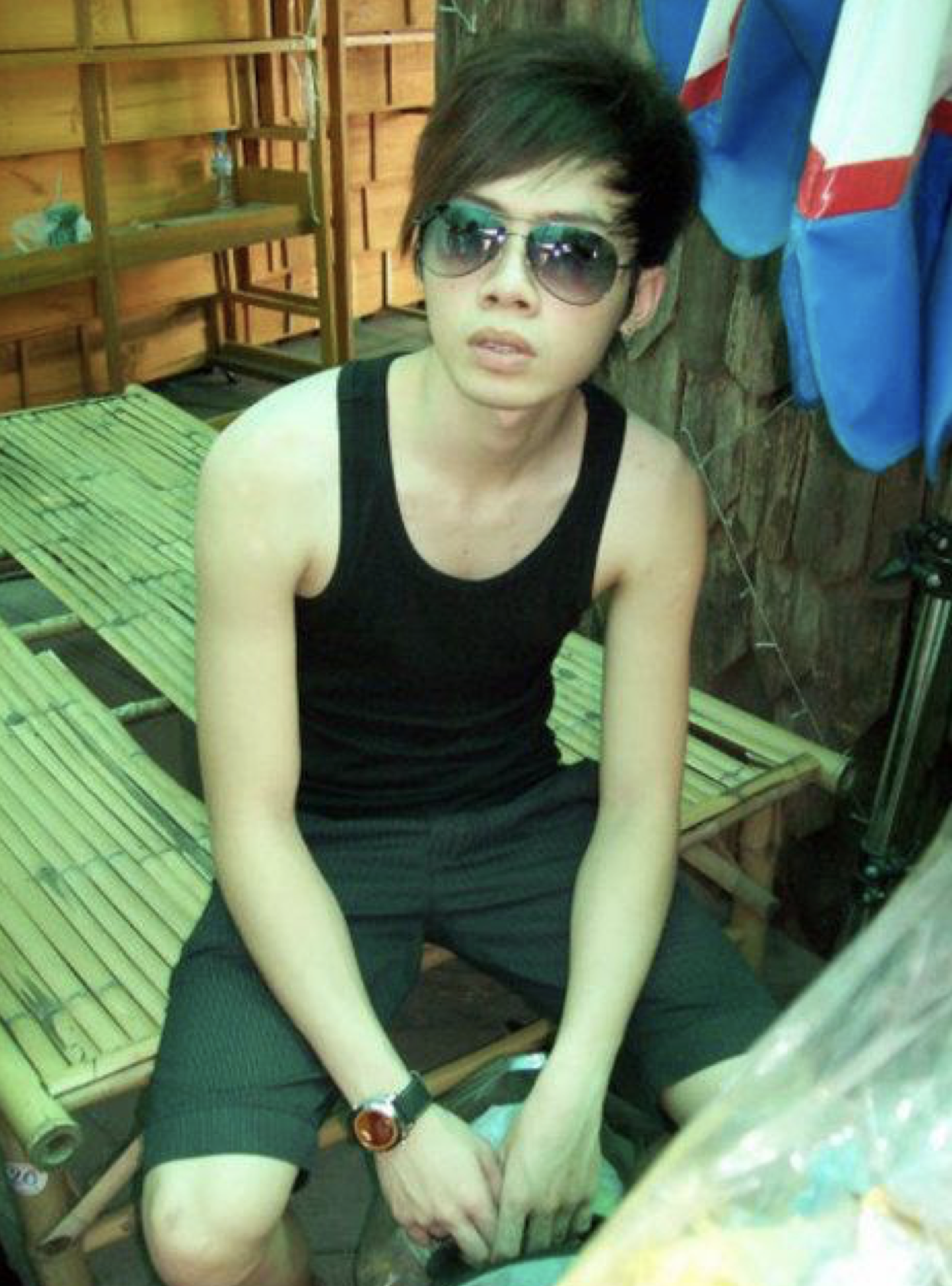 Photo courtesy of Jerome Yap.
Photo courtesy of Jerome Yap.
Even so, Yap credits two teachers from Teck Whye — Ms Serena and Ms Ang Wei Qi — for spotting something different in him:
"They said, 'Jerome you are not like the rest. Even though you are in Normal Technical, the way you think and the way you talk, you are not like them'. They advised me to focus on my studies and try not to get involved with the rest."
Accepted that he was "worthless" and "good for nothing"
It's tough being labelled as academically inferior but for Yap, it was even more so because his two elder sisters did far better than him in school. Next to them, he felt like his early academic failures were amplified many times over.
"My sisters are clever and smart — and I'm not," says Yap quite matter-of-factly.
When Yap was placed in the Normal Technical stream at Teck Whye, his sisters, who were just two and three years older than him, were in its Express stream.
They went on to junior college and university (from which they graduated with second-upper honours degrees) while Yap went to ITE Balestier and then ITE College West.
And it was not for a lack of help from them along the way. Yap's sisters tried to guide him, and he also went for math tuition, but he says his bad attitude eventually proved too much for them to take.
As with any Singaporean student seen to be underperfoming academically compared with their siblings, Yap shares that he, too, faced the demoralising situation of being looked down upon by people (relatives included).
"Some people said to me 'Hey Jerome, next time if you can't find any job, why don't you wash my car or fix my aircon?' Things like that I don't think they remember it today, but I do. Because during that moment, I was pushing myself so hard. But they didn't see any effort and then they just come in and say things like that...
But I slowly accepted the fact that I'm worthless and good for nothing. So when my sisters told me not to do this or do that, I just didn't care."
That being said, Yap's sisters did their best to understand him:
"When I said I wanted to become a designer, they literally went to Google what can a designer do in Singapore, then they came back and teach and guide me. They've always been supportive, they always gave me a pat on my shoulder, and encourage me."
The Yap sisters also used their own savings to buy Yap his own mobile phones, as well as a MacBook for school.
A turning point in Higher NITEC
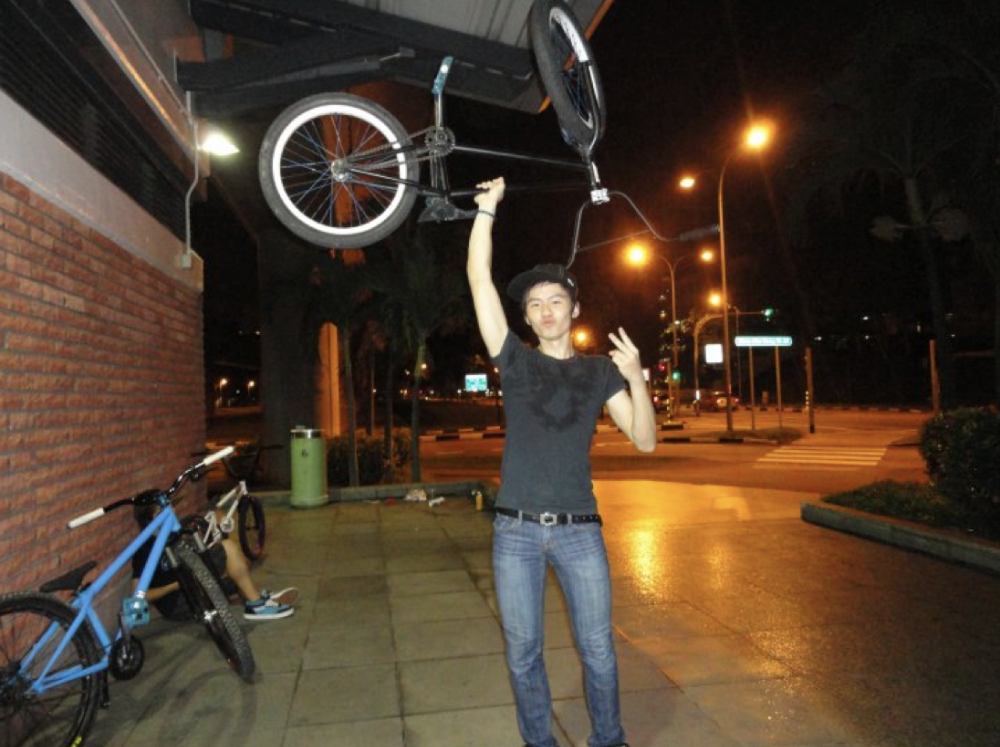 Yap during his ITE days. Courtesy of Jerome Yap.
Yap during his ITE days. Courtesy of Jerome Yap.
Winding up in ITE after secondary school was, in Yap's words, the moment he proved to everyone that he was stupid, and accepting that he was not cut out for an academic route.
He took on programming and multimedia because he did not know what he wanted to do in life.
"My friends said that computers will be the next big thing so I decided to do it," Yap chuckles.
"For the first two years I hated it because it required a lot of coding, and learning a new language. I couldn't even understand my own Mother Tongue, how could I understand another language?!"
Surprisingly, though, he breezed through his NITEC with a GPA of 2.8 out of 4 to specialise in multimedia in Higher NITEC.
Perhaps the cumulative efforts by his sisters also paid off because by then Yap found himself wanting to do better — a significant transformation from his earlier days:
"Sometimes when they come back (from university classes) and talk to me about what they learnt in school, I started thinking that in a couple of years time, I also want to be in their shoes, getting my degree, stressing over school, and stressing over dissertations instead of worrying about getting into fights."
Listening to them, Yap found himself wanting to learn to speak better, more confidently, and in his words "like an educated person", and decided that he needed a change of environment to do so.
Yap found a group of Higher NITEC friends who shared his aspirations of obtaining a diploma. They pushed each other to work harder.
"I have this group of friends, five of us. We are constantly pushing each other for the better. That was when I realise that friends don't have to be in gangs; friends won't ask you to do bad things. And this group of friends aspired for at least a diploma."
It wasn't easy. There were times they broke down from stress and the societal stigma. There were many times Yap and his friends thought of quitting school and joining the workforce but they persevered, in part thanks to encouragement from one another.
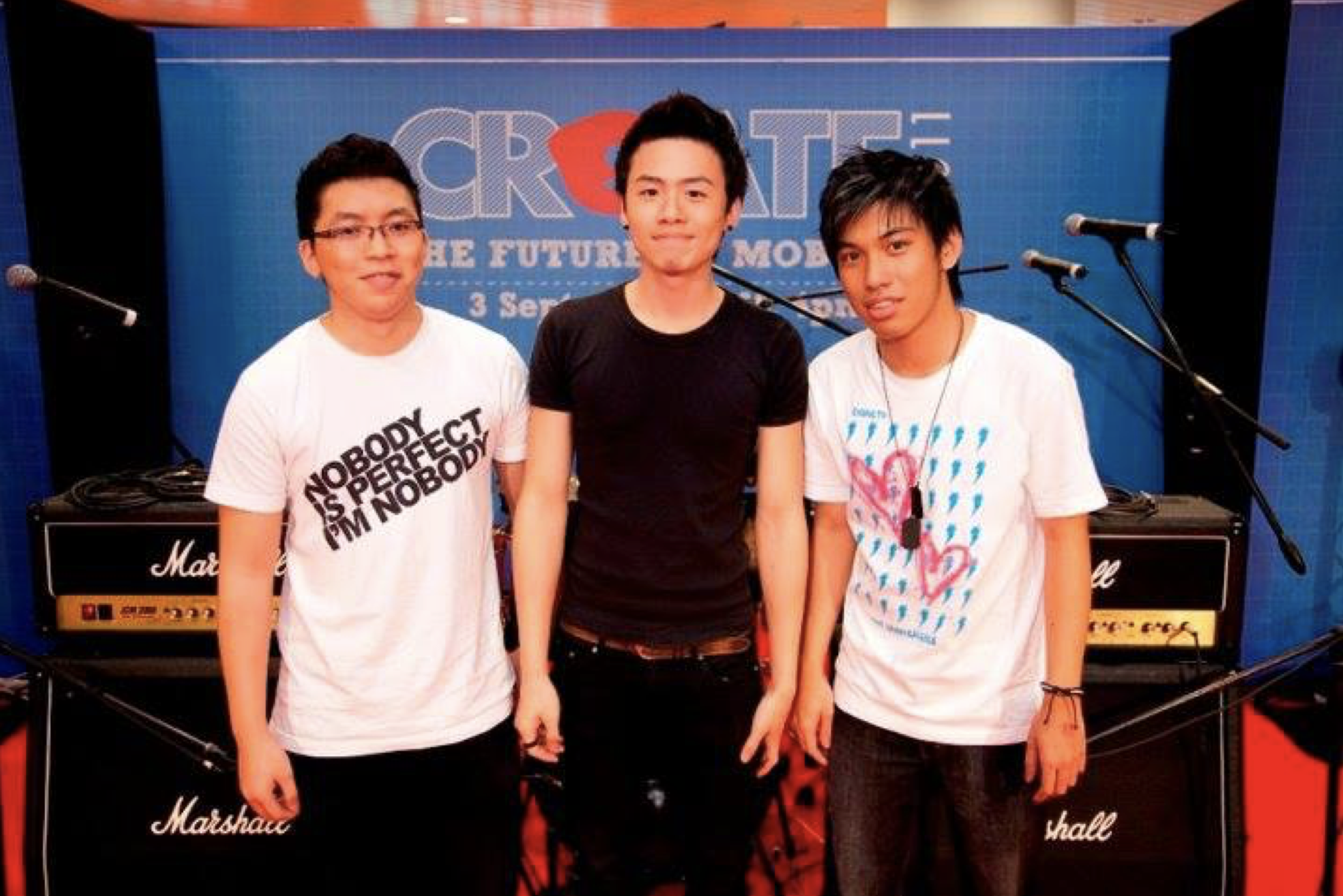 Yap and his team at Create 2011. Image courtesy of Jerome Yap.
Yap and his team at Create 2011. Image courtesy of Jerome Yap.
It was at an inter-school design competition in 2011 called "Create" that Yap began to question the social stigma of being an ITE student.
Yap's team (representing ITE College West) made it to the semi-finals with a design for interchangeable lenses and microphones for smartphones. They did not win but it set Yap thinking:
"What's so different about being an ITE student? What's so different from being in Raffles or Hwa Chong or a polytechnic? We're all trying to push ourselves."
Using his experiences to help others
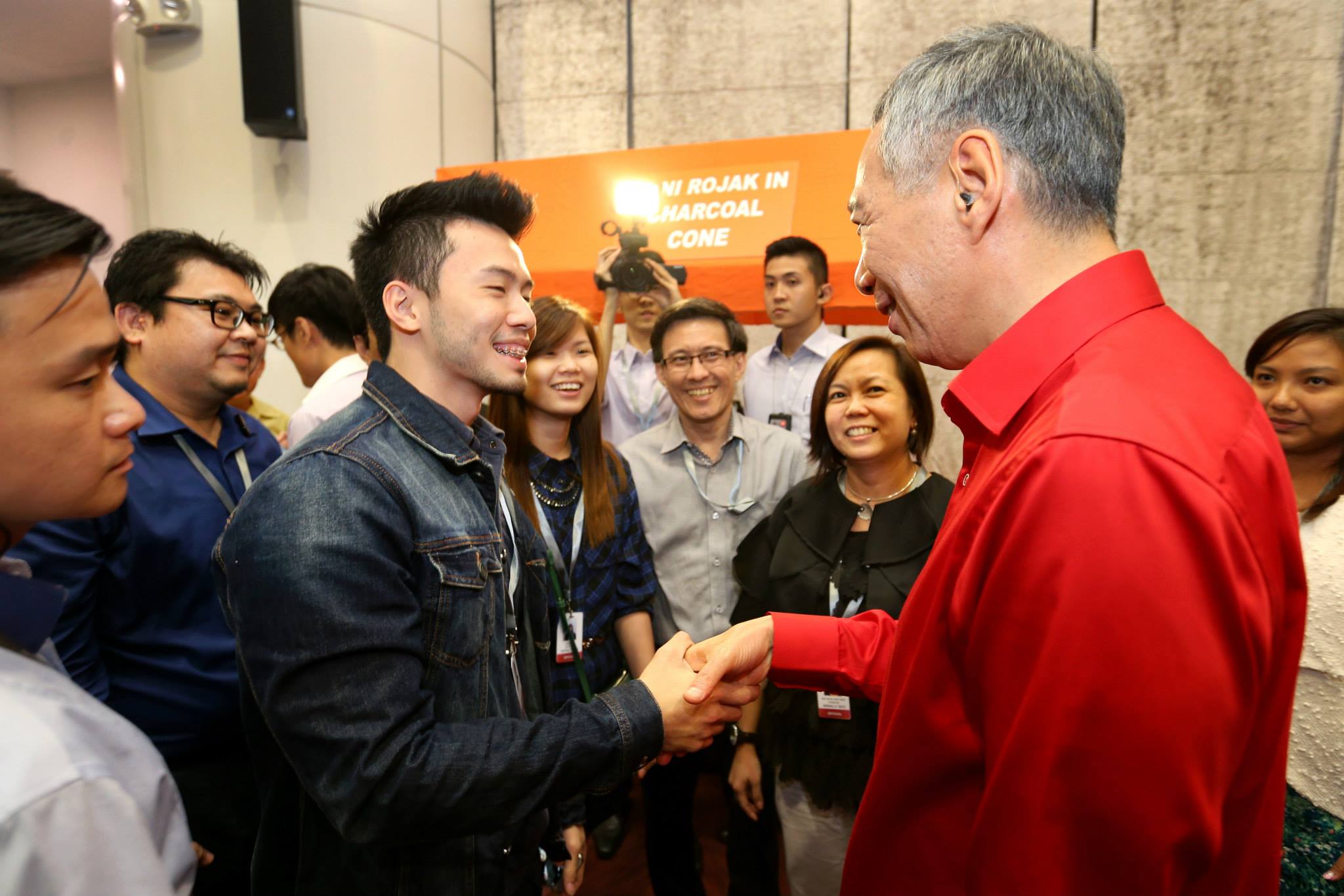 Yap, meeting Prime Minister Lee Hsien Loong at NYP. Image courtesy of Jerome Yap.
Yap, meeting Prime Minister Lee Hsien Loong at NYP. Image courtesy of Jerome Yap.
By the age of 21, Yap was accepted into Nanyang Polytechnic (NYP) with a Higher NITEC GPA of 3 out of 4. He was about four years older than his cohort peers, including some who came from Express streams.
"I've always looked up to Express students, but when I entered Nanyang, they looked up to me because I came from ITE and I have a skill set. So they would come to me and ask me how to do this and that."
Yap says that was when he started being more conscious about mentoring, something he continues today by giving motivational speeches.
In part, it was thanks to one of his Higher NITEC lecturers whom he called Mr Raymond, who was one of the first to believe in him and his classmates:
"From the first day he took our class to the last day at our graduation, he was always there. He was like, 'I don't see ITE students as ITE students.'
I was like, this is the teacher I need, because I don't need another lecturer to label me as a 'hopeless ITE student'."
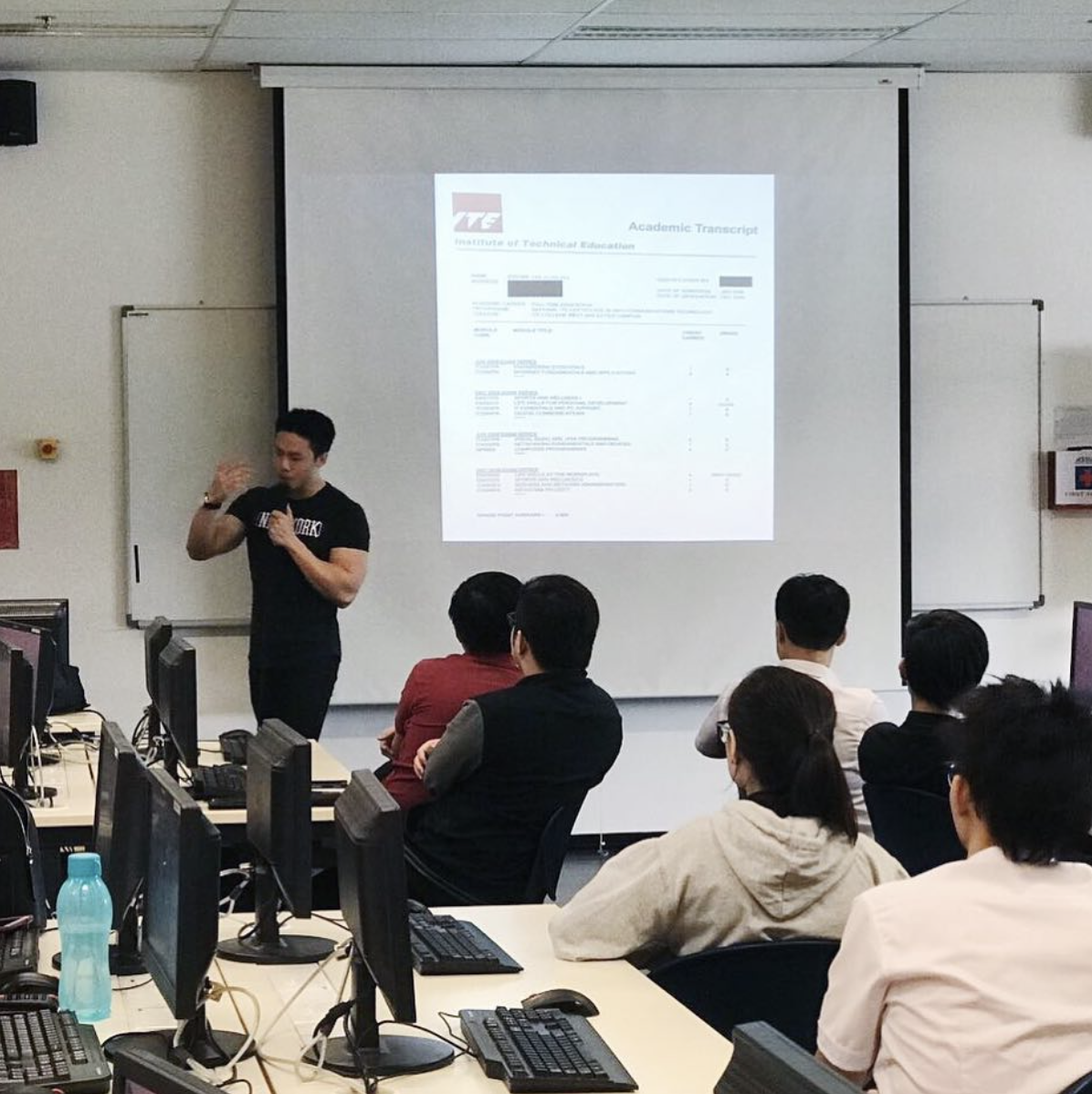 Yap giving a motivational talk. Courtesy of Jerome Yap.
Yap giving a motivational talk. Courtesy of Jerome Yap.
Yap says Raymond called him one day and asked him to share his academic journey, which he specifically referred to as a "success story".
"I see each year's sharing session as a summary of my achievements. I can share to them experiences that they can have in the future."
One of these, of course, was receiving the inaugural Lee Hsien Loong Award for Interactive and Digital Media. The award was created to encourage NYP media students who create visuals for PM Lee's National Day Rally speeches:
And that leads us to where we are today, with Yap finishing his degree in Design Communications at LASALLE College of the Arts."There are a couple of times I wondered why I have to go through this long journey, why didn't I study hard and follow the system. But there is no perfect scenario. I might have fallen out of this system and tested another kind of system. I definitely have regrets but I move on. If I did not go through this I won't be where I am today."
Yap is also the proud founder of AllOUT Label, which does design, photography and creative collaboration with companies and events. It is his hope that he can pursue it full time post graduation.
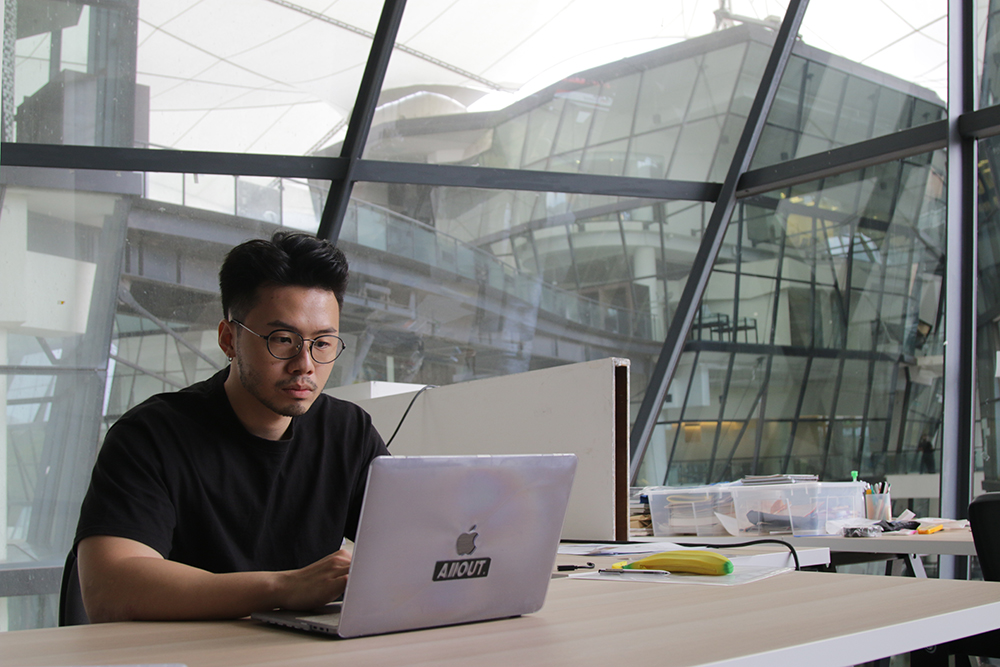 Jerome at Laselle College of the Arts. Photo by Ilene Fong.
Jerome at Laselle College of the Arts. Photo by Ilene Fong.
To many, this might be just another cautionary tale against forcing a square peg into a round hole, especially salient in light of education reforms in recent years.
Thinking that to be the sole takeaway from Yap's story, however, is to ignore the importance of personal resilience and support, no matter how different the route or how big the detour.
After all, it does not matter how slow you go so long as you do not stop.
All images by Ilene Fong. Some of Yap's quotes were edited for clarity.
If you like what you read, follow us on Facebook, Instagram, Twitter and Telegram to get the latest updates.
